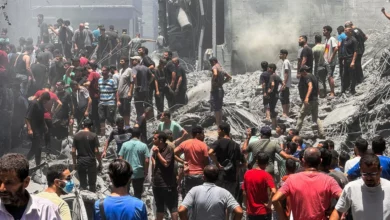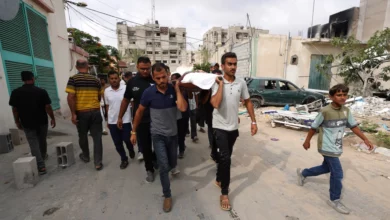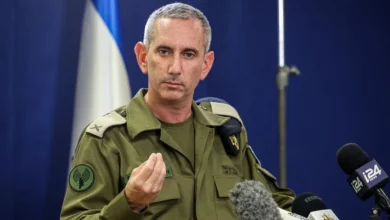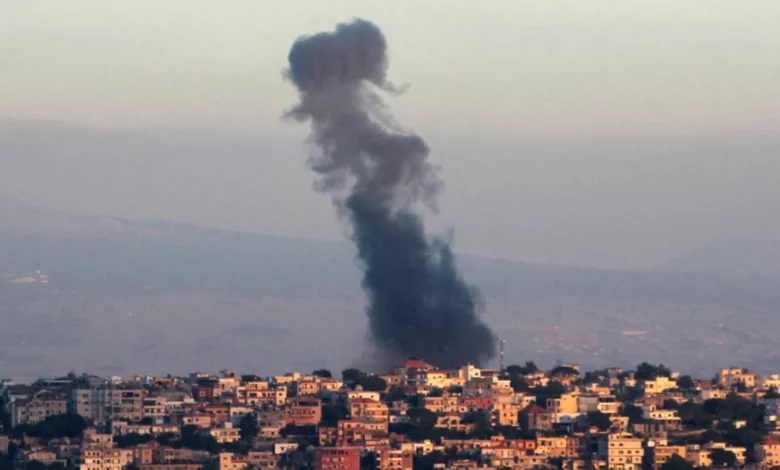
Editor’s Note: A version of this story appears in CNN’s Meanwhile in the Middle East newsletter, a three-times-a-week look inside the region’s biggest stories. Sign up here.
Israel and the Lebanese Iran-backed Islamist group Hezbollah are ramping up cross-border attacks after months of low-intensity fighting, prompting the Israeli military to warn this week that it is prepared to launch a large-scale attack on its northern border.
With both sides trading fire for more than eight months, experts say Israel feels it can no longer ignore its northern front or delay taking action there.
A full-blown war appears to have become more likely – even if both sides have no desire for one, analysts believe.
Here’s what we know:
Why are Israel and Hezbollah fighting?
Lebanon and Israel have officially been in a state of war for decades. Israel launched a devastating invasion of Lebanon in 1982, sending tanks all the way to the capital Beirut, after coming under attack from Palestinian militants in the country. It then occupied southern Lebanon for 22 years until it was driven out by Hezbollah in 2000. In Lebanon, Hezbollah is officially considered a “resistance” group tasked with confronting Israel, which Beirut classifies as an enemy state. Much of the Western world has designated Hezbollah a terrorist organization.
Since then, the two sides have traded fire sporadically, but tensions boiled over in 2006 when Israel went to war in southern Lebanon after Hezbollah kidnapped two Israeli soldiers. More than 1,000 Lebanese were killed in that conflict, mostly civilians, as well as 49 Israeli civilians and 121 soldiers. Two years later, Hezbollah returned the remains of the kidnapped soldiers in exchange for the release of Lebanese and Palestinian prisoners in Israeli jails, as well as the bodies of militants Israel was holding.
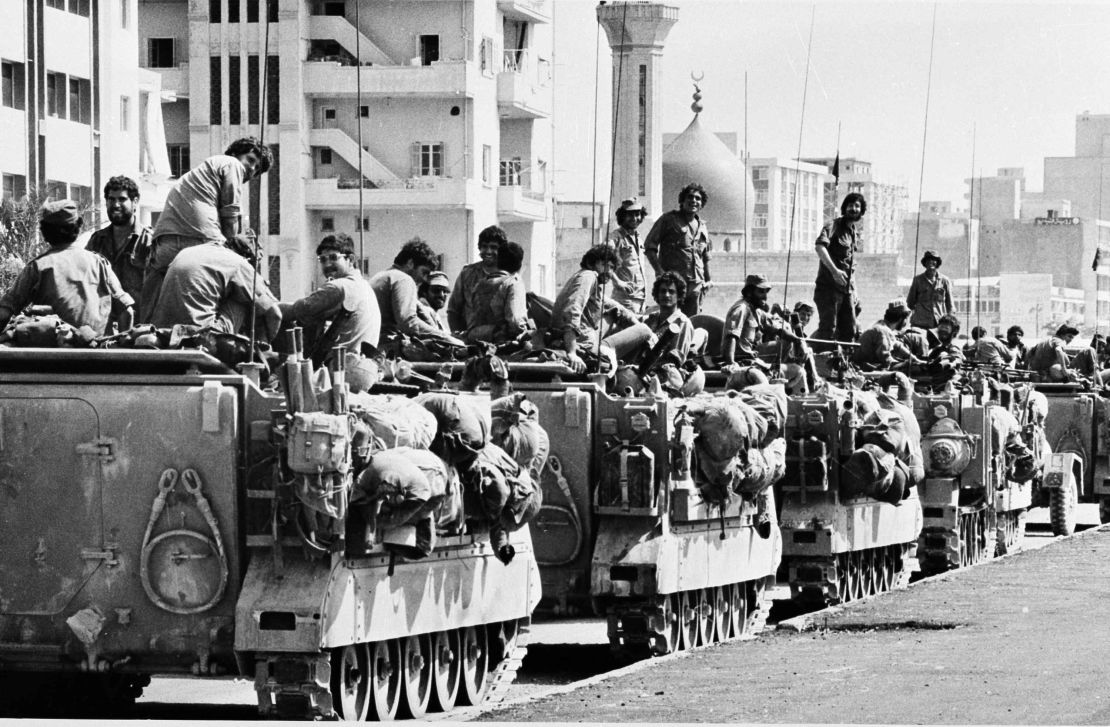
The latest hostilities between Israel and Hezbollah started after Hamas led an attack on Israel on October 7, killing 1,200 people and abducting 250, according to Israeli authorities. That prompted Israel to go to war with Hamas in Gaza, during which it has levelled much of the territory and killed more than 36,000 Palestinians. Hezbollah has said that its current round of fighting with Israel is to support the Palestinians in Gaza.
The military capability of the Lebanese group has grown since 2006, when it relied largely on inaccurate Soviet-era Katyusha rockets. Today, Hezbollah leader Hassan Nasrallah says his group boasts more than 100,000 fighters and reservists. The group is also believed to possess 150,000 rockets that could overwhelm Israel’s defenses if an all-out war breaks out.
Why are tensions flaring up now?
The conflict between Israel and Hezbollah has been gradually intensifying since October 8, said Heiko Wimmen, project director for Iraq, Syria and Lebanon at the International Crisis Group, a Brussels-based think tank. It’s a “slow-motion escalation” that “inches upwards,” he said.
But both sides have come closer to war of late as clashes across the border have grown in number and scale. “There is clearly an escalation,” said Wimmen, particularly in terms of deaths on each side of the border and the type of weaponry Hezbollah has been deploying.
An Israeli reservist was killed in a Hezbollah strike on a village in northern Israel on Wednesday, bringing the total number of soldiers killed on the Israeli side to 19.
Israel and Hezbollah have also been striking much deeper into each other’s territory than they were at the beginning of the war, when fighting was confined to a roughly 4-kilometer (2.5-mile) radius of the border on either side.
Hezbollah has fired 35 kilometers into Israel, while Israel has targeted areas of Lebanon more than 120 kilometers north.
Cross-border attacks from Lebanon this week led to large fires blazing through Israel’s northern region, which Israel attributed to rocket fire from southern Lebanon, where Hezbollah said it had launched a “swarm of drones” at Israeli military sites.
On Wednesday Hezbollah said it had targeted Israel’s Iron Dome defense system in the northern village of Ramot Naftali, using a guided missile. Israel Defense Forces spokesperson Lt. Col. Peter Lerner told a briefing Thursday: “I can’t confirm that at this stage. I can’t confirm that this happened at all.”
Amal Saad, a lecturer at Cardiff University and an expert on Hezbollah, said the group’s escalation “is a marked departure from prior flare-ups that have occurred since October 8.”
“This stage transcends merely responding to Israeli attacks and restoring deterrence; it involves conveying new messages and strategies,” Saad wrote on X.
The conflict has become “very visible” and “difficult to ignore,” said Wimmen, of the International Crisis Group, adding that Israeli officials feel compelled to respond, or at least be seen as responding, amid pressure to react from far-right ministers in Prime Minister Benjamin Netanyahu’s government.
There is a push within government and the Israeli army to take action in the north, Ronni Shaked, a scholar at the Truman Institute at the Hebrew University of Jerusalem, told CNN. “Nobody can live in this situation.”
What are both sides saying?
Rhetoric has been fiery from both sides, but experts say neither side wants a full-blown conflict.
Netanyahu in December warned that Beirut would turn into Gaza if Hezbollah chose to start an all-out war.
But Finance Minister Bezalel Smotrich this week poured cold water on the prospect of a wider war, saying the IDF isn’t interested in broadening the war to eliminate Hezbollah. The military is “telling us right now that it doesn’t want to… launch an attack in the north, fight and defeat Hezbollah, and overwhelm it and create a security zone.”

During his visit to the northern city of Kiryat Shmona near the Lebanese border on Wednesday, Netanyahu said Israel was prepared for “very intense action” in the north.
“Whoever thinks that they can hurt us and that we will sit idly by is making a big mistake,” the prime minister said. “One way or another, we will restore security to the north.”
Naim Qassem, Hezbollah’s second-in-command, told Al Jazeera on Tuesday that the group had assessed that recent threats from Israel were not serious.
“Either way, we have decided not to widen the battle and we do not want an all-out war. But if it is imposed on us, we are ready and we won’t retreat,” Qassem said, adding that Hezbollah will end its attacks on Israel once the war in Gaza stops.
Is a full-blown war likely?
Experts say that while both sides may not choose to start an all-out war, their escalatory actions may still trigger one inadvertently.
Wimmen of the International Crisis Group said that Israel and Hezbollah are unlikely to take a conscious decision to start a war. However, the more intense the conflict becomes, the deeper each side strikes into the other’s territory and the heavier the weapons used, the more likely it is that “something goes wrong,” he said.
Netanyahu is under intense pressure from the opposition and members of his coalition to take action in the north, especially given that so many Israelis have been displaced from the area.
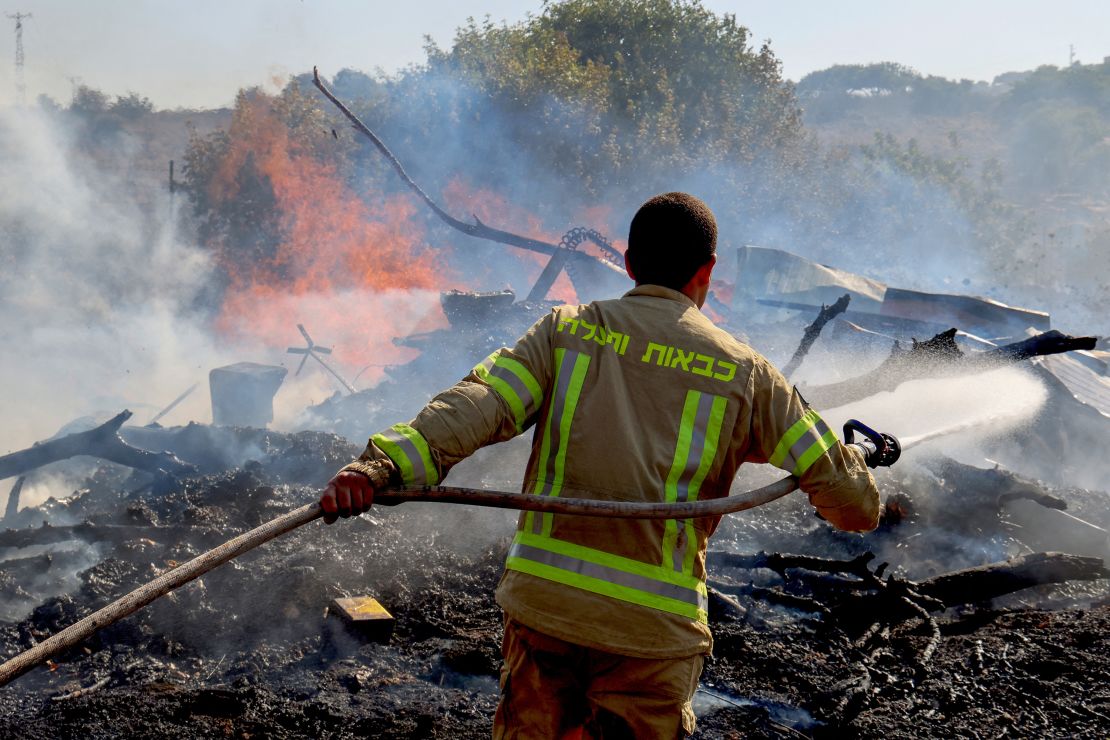
More than 53,000 Israelis have been forced to leave their homes in the north, the IDF said. In Lebanon, more than 94,000 people have been displaced from areas and towns near the border with Israel since the conflict started, according to figures released Tuesday by the Lebanese Ministry of Public Health.
“All Hezbollah strongholds must be burned and destroyed. War!” said Israeli far-right National Security Minister Itamar Ben Gvir in a statement this week.
Opposition leader Yair Lapid also slammed the government, saying: “The north goes up in flames and Israeli deterrence burns with it.
“The government has no plan for the day after in Gaza, no plan to return the residents to the north, no management, no strategy. A government of total abandonment,” Lapid said on X.
The US has cautioned against escalation, worried it might spin out of control. State Department spokesperson Matthew Miller said Wednesday the United States is “incredibly concerned” about the risk of escalation, adding that the Biden administration is engaged in diplomatic conversations “to try to avoid that conflict from escalating beyond control.”
Shaked, the Truman Institute scholar, said that despite Hezbollah’s assertions that its attacks on Israel are in support of Gaza, the group’s strategy is likely to be closely coordinated with its closest ally Iran – especially with so much at stake.
CNN’s Tamar Michaelis, Jonny Hallam, Mike Schwartz, Abbas Al Lawati and Jennifer Hansler contributed reporting,

